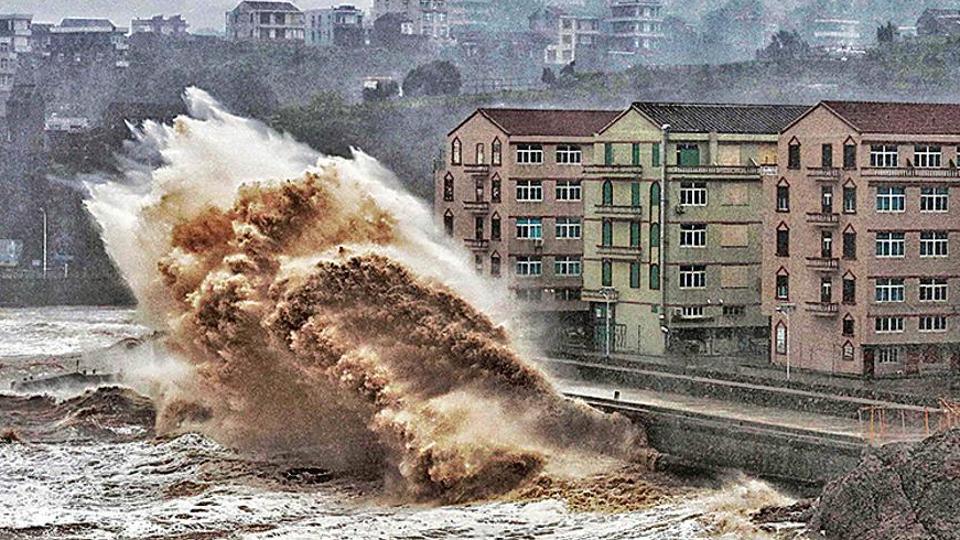The same oceans that nourished human evolution are poised to unleash misery on a global scale unless the carbon pollution destabilising Earth’s marine environment is brought to heel, warns a draft UN report
DESTRUCTION AHEAD
Destructive changes already set in motion could see a steady decline in fish stocks, a hundred-fold or more increase in the damages caused by superstorms, and hundreds of millions of people displaced by rising seas, according to the Intergovernmental Panel on Climate Change (IPCC) report on oceans and Earth’s frozen zones, known as the cryosphere
30%of the northern hemisphere’s permafrost could melt by century’s end unleashing billions of tonnes of carbon and accelerating global warming
THREAT TO THE BIG FOUR
The Big Four — China, United States, Europe and India — all face devastating ocean- and ice-related impacts, but none seem prepared just announce more ambitious goals for purging carbon from their economies.
60%of global fossil fuel-based emissions originate from these regions
India: Mumbai and other major coastal cities like Chennai and Kochi are highly vulnerable to sea level rise
China: Shanghai, Ningbo, Taizhou and another half-dozen major coastal cities are in harm’s way, the report says
United States: New York, Miami and other exposed cities, could easily be overwhelmed by sea rise
Europe: Cities like Amsterdam, Venice, Hamburg face the most immediate threat from a rising sea level
1,000x FLOOD DAMAGE
By 2050,
Low-lying megacities and small island nations will experience “extreme sea level events” every year
By 2100
Annual flood damages are expected to increase 100 to 1,000 fold
250,000,000
People expected to be displaced by global ocean waterline rise
“When you consider the political instability that has been triggered by relatively small levels of migration today, I shudder to think of the future world when tens of millions of people are moving because the ocean is eating their land.”
Ben Strauss, CEO and chief scientist of Climate Central, a US research group
A ‘MARINE SPONGE’
Cceans act as a sponge for the ill-effects of climate change. Without this, global warming would already have made Earth’s surface intolerably hot. Oceans absorb:
90%heat generated by greenhouse gas emissions since 1970
25%of CO2 emitted
Downsides of ‘sponge’ effect
Acidification is disrupting the ocean’s basic food chain
Marine heatwaves are creating vast oxygen-depleted ‘dead zones’






















 WhatsApp us
WhatsApp us